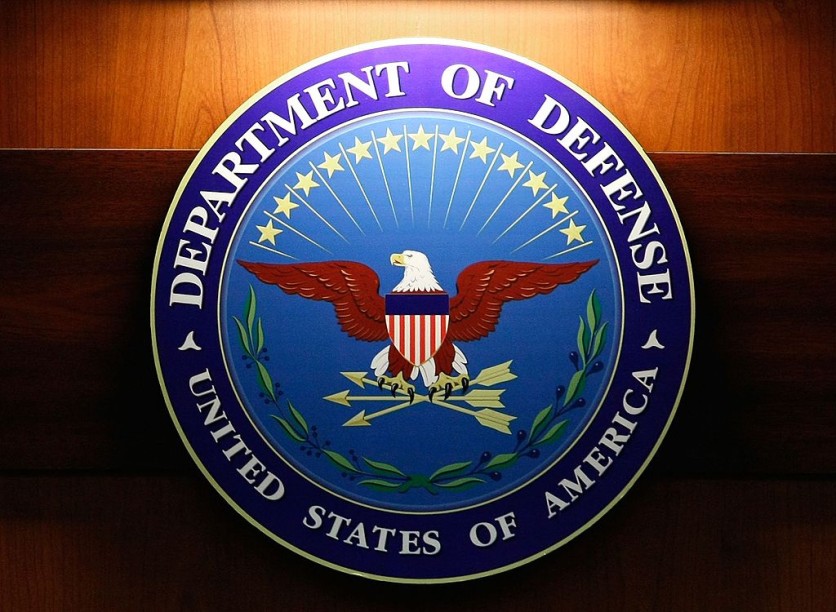The Department of Defense's artificial intelligence (AI) symposium is set to happen this week, showcasing viable uses of AI in the military. Dubbed as Advantage DoD 2024, the AI symposium is set to take place on February 20 to 22 in Washington, DC, with a classified session on February 23.
"Advantage DoD 2024: Defense Data & AI Symposium" is set to bring together the top minds in the industry, government, and academia to talk about the DOD's technological requirements, including the development and application of AI, analytics, and data in the future.

ARLINGTON, VA - SEPTEMBER 27: A light shines on the seal of the Department of Defense during a briefing at the Pentagon, September 27, 2007 in Arlington, Virginia. Today was Chairman of the Joint Chiefs of Staff Gen. Peter Pace's last official day as Joint Chief Chairman.
The Department's Task Force Lima, tasked with deciding how large language models (LLMs) should be used in the DoD, is set to have work highlighted at the event. Additional seminars will reportedly cover subjects such as working with Allies and partners, AI scaffolding, data mesh services, current strategy and policy issuances, and the DoD digital workforce.
The Chief Digital and Artificial Intelligence Office (CDAO) will host the event at the Washington Hilton, 1919 Connecticut Ave., on February 20-22, 2024. Washington, DC, NW. Additionally, on February 23, 2024, at the National Geospatial Intelligence Agency (NGA) in Springfield, VA's Allder Auditorium, a special classified session is scheduled as part of Advantage DoD 2024.
Advantage DoD 2024 Attendees
Representatives from prominent technology companies, including Dr. Scott Papson, Principal Solutions Architect of Amazon Web Services, and Dr. Billie Rinaldi, Responsible AI Division Lead of Microsoft's Strategic Missions and Technologies Division, will participate in panels at the symposium that are centered around Task Force Lima's work. OpenAI's head of Security, Matt Knight is also expected to attend the symposium.
Government officials from all over the world such as those from South Korean army, Singapore, and the United Kingdom will also reportedly be represented on a panel discussing the ethical application of AI in the military.
Military AI Risks
As per the Washington Times, Kathleen H. Hicks, the deputy secretary of defense, told reporters last year that the department has found more than 180 areas in which using generative AI techniques may improve operations.
But according to her, the majority of AI systems that are sold commercially are not developed enough to abide by ethical standards set by the government. An OpenAI study recently echoed this notion when it found that experts' access to (research-only) GPT-4 proved to enhance their understanding of biological dangers by as much as 88% in terms of job correctness and completeness.
A number of AI models, including those created by Anthropic, OpenAI, and Meta, was also reportedly found to have a tendency to escalate conflicts quickly and occasionally result in the use of nuclear weapons.
The study conducted by researchers from Georgia Institute of Technology, Stanford University, Northeastern University, and the Hoover Wargaming and Crisis Simulation Initiative found that all AI models showed signs of abrupt and erratic intensification, frequently encouraging arms-race dynamics that lead to increased hostilities.
Related Article : Microsoft Discovers State-backed Hackers From China, Russia, and Iran Are Using OpenAI Tools for Honing Skills





